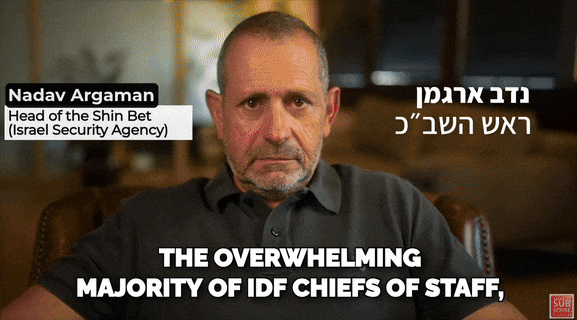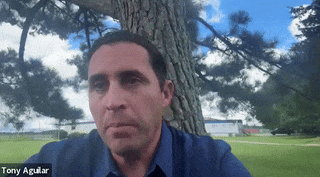
Friends,
Our community is facing a painful moment of moral reckoning – one made even harder by the spin, deflections and calculated distractions churned out daily by Netanyahu and his backers and repeated ad nauseam online.
That’s why we’ve put together this resource: A guide to the misinformation and talking points we hear again and again – with clear, grounded responses to cut through them.
It’s a time for tough conversations – with our communities, our loved ones and ourselves. We hope this guide helps you meet those conversations with clarity and conviction.
–––––––––––––––––––––––––––
Four Ways To Make Yourself Heard in Challenging Conversations
🔄 Reflect Shared Values and Concerns: Especially if a talking point is frustrating, take a beat to acknowledge the genuine concern behind it. Sharing underlying values builds connection and makes your response more likely to be heard.
💡 Frame Corrections as New Information: Share facts as something you’ve learned, not as as ‘gotcha’ moment. Keep the conversation personal, rather than a fact-dumping contest.
🔍 Name The Game: When you hear blame-shifting or misleading information, step back and reject the tactic and its goals – to evade accountability, sow doubt or delay action.
📣 Amplify Israeli Validators: From hostage families to security experts to peace advocates, there’s a chorus of Israelis calling for a war-ending hostage deal and a surge in aid – voices that can carry more weight amid those who distrust of the UN, foreign critics and other sources.
How to Respond to Common Misinformation and Talking Points
“Israel needs to continue the war to defeat Hamas.”
- We all want Hamas gone and unable to launch attacks ever again – but experts say Hamas is now severely degraded and no longer poses a significant threat to Israel.
- Former heads of Mossad and Shin Bet say the idea that more war will defeat Hamas or free hostages is a “lie” and a “fantasy” that only serves “messianic zealots” – who see it as a step toward occupying and resettling Gaza – and Netanyahu who relies on them.
- IDF Chief Eyal Zamir said this is a “black hole” and warned Israel is “walking into a trap.”
- The US learned these lessons the hard way from Vietnam, Iraq and Afghanistan.
- A majority 74% of Israelis support a war-ending hostage deal. Another recent poll found 76% of Israelis have lost trust in Netanyahu’s government, 61% believe that the current strategy won’t return hostages and 52% blame the government.
- You can’t beat something with nothing. The best way to defeat Hamas for good is to cut a deal to get hostages out now and end the war, get neighboring states and moderates to stabilize the situation in Gaza and build government and security structures that marginalize Hamas.
“If Hamas released the hostages, the war would end tomorrow.”
- The hostages should never have been taken and should be released immediately – but this sounds more like a talking point designed to justify endless war rather than a strategy to get them home.
- We should keep pressure on Hamas, but we should also listen to hostage families and former Israeli security officials who are calling for Netanyahu to take a more reasonable negotiating position that could end the war.
- Netanyahu is trying to prolong this war because extremists in his cabinet would rather occupy and settle Gaza than get the hostages home. They are motivated by a religious belief in conquering all of Biblical Israel, not Israeli security.
- The best way to get the hostages home is to put a clear deal on the table to end the war in Gaza in exchange for all the hostages and Hamas agreeing to stay out of the Gaza government – we need to press for that rather than letting Netanyahu put forward unreasonable demands such as Israel holding half of Gaza in perpetuity.
- Netanyahu has thus far refused to put forward that kind of deal.
“No country has ever been expected to feed its enemy during a war.”
- I know it can often feel like Israel is being held to a higher standard and so much criticism is extreme – but families struggling to feed their kids aren’t the enemy. We have to live up to our values.
- International law should be upheld by everyone, and it prohibits blockades of aid. No country should be allowed to use starvation as a weapon of war. I disagree with senior Israeli leaders who have said aid blockades are a valid tactic.
- When the US was fighting ISIS in Iraq and Syria we invested heavily in humanitarian assistance to feed the population – Israel can do the same.
- Security officials have warned that obstructing aid may actually help Hamas because when food is scarce, Hamas can hoard it and use it to exert power.
“Hamas is to blame for any starvation because it steals humanitarian aid.”
- Hamas deserves a massive share of the blame and clearly has absolutely no regard for their own people – but that cannot justify blocking aid to millions of innocents.
- Critical members of Netanyahu’s coalition, including Israel Katz, Amihai Eliyahu, Bezalel Smotrich and Itamar Ben-Gvir have openly said Israel should and is blocking food to Gaza. I’m worried this talking point is being used as a justification for those plans.
- It is a fact that Israel blocked all food and medicine into Gaza for 78 days from March to May of 2025.
- A US government investigation found “no evidence of systematic theft” of aid.
- Senior Israeli officials told the New York Times they had found no evidence of systemic theft, and that UN systems were “largely effective” in providing aid.
- If we want to reduce the value of aid to Hamas and ensure the vulnerable also have access to what they need – the answer is to flood the zone with regular, reliable aid.
“Humanitarian agencies are leaving aid to rot on the other side of the border.”
- I agree that it’s infuriating that people are dying of starvation and treatable diseases when food and supplies are sitting in trucks less than a mile away in some cases – but this is misinformation being used to muddy the waters, not solve the problem.
- Hundreds of aid workers have been killed in Gaza and aid agencies have a duty to keep their workers safe – that includes coordinating with the IDF to ensure safe delivery.
- Refusals to coordinate, arbitrary restrictions, extreme desperation, armed gangs, damaged roads and repeated strikes on convoys have made delivery even more difficult.
- “If Prime Minister Benjamin Netanyahu of Israel decided tonight that every Palestinian child in Gaza should have breakfast tomorrow, it could undoubtedly be done,” wrote one famine expert in the New York Times. The Israel I believe in would make that decision.
“Israel is letting in more aid now than it was before the war.”
- I’m glad we agree that Israel should be generous and that starving civilians is wrong – but this is a misleading talking point. It is true that less humanitarian aid was needed before the war, but that’s because commercial goods and local farms were operational.
- Around 500-600 trucks of goods and supplies entered Gaza each day prior to October 7. That number has been cut to 100 or 200 trucks – or almost zero for some periods.
- I’m worried that people say misleading things like this to justify the unjustifiable.
“Egypt could open the border to aid at any moment.”
- I know it feels like too much blame is placed on Israel, but this is misleading.
- Israel maintains effective control of the Gaza-Egypt crossing in coordination with Egypt and other authorities and has bombed in and around the border crossing.
- Even if Egypt fully opened Rafah, trucks can’t cross without Israeli clearance, supplies have to pass Israeli checkpoints and distribution would require IDF support.
“There is no starvation in Gaza.”
- I know it’s difficult to trust information coming out of Gaza – one of the problems is that Netanyahu is not letting journalists in – but the reporting and evidence are overwhelming.
- For several months, Netanyahu’s government blocked all humanitarian aid – including food and medicine and baby formula and childhood vaccinations. That has an impact.
- Israeli human rights organizations are also protesting and suing the government to try to get more aid in – even Israeli veterans and former leaders in the IDF and intelligence agencies have called for more aid. Former Israeli Prime Minister Ehud Olmert has said that this is a violation of international law.
- We cannot trust the spin on a government which has said it has the right to block humanitarian aid and has done so – Netanyahu’s government is not credible.
“The whole world seems to be biased against Israel, you can’t trust any of it.”
- I agree there are a lot of anti-Israel voices out there – but you’re talking to me right now.
- I care about this out of care for the soul of the Jewish people / out of love for Israel and concern about its future / because I cannot look away from the moral crisis we face.
- I’m inspired by the groups in Israel speaking out – the hostage families and peace advocates and former generals – many of the same groups that were campaigning to defend Israel’s democratic future from Netanyahu before the war.
- We can’t let our love for Israel or our distrust of its critics blind us to reality: The reality is that starving civilians and pursuing endless war is not just terrible for the families like yours and mine in Gaza – but also for young soldiers sent there, for hostage families who want a deal, and for Israel’s standing among nations and with the diaspora.
Want to go deeper on Humanitarian Aid? Download our myths and facts guide here >>
Amplify Pro-Peace Voices in Your Social Networks
Resources to Share
Israeli Security Chiefs: ‘End the war and bring the hostages home!’

J Street Speaks with Gaza Humanitarian Foundation Whistleblower Tony Aguilar and Israeli Activist Tania Hary

J Street Speaks with Israeli Voices Against the War
